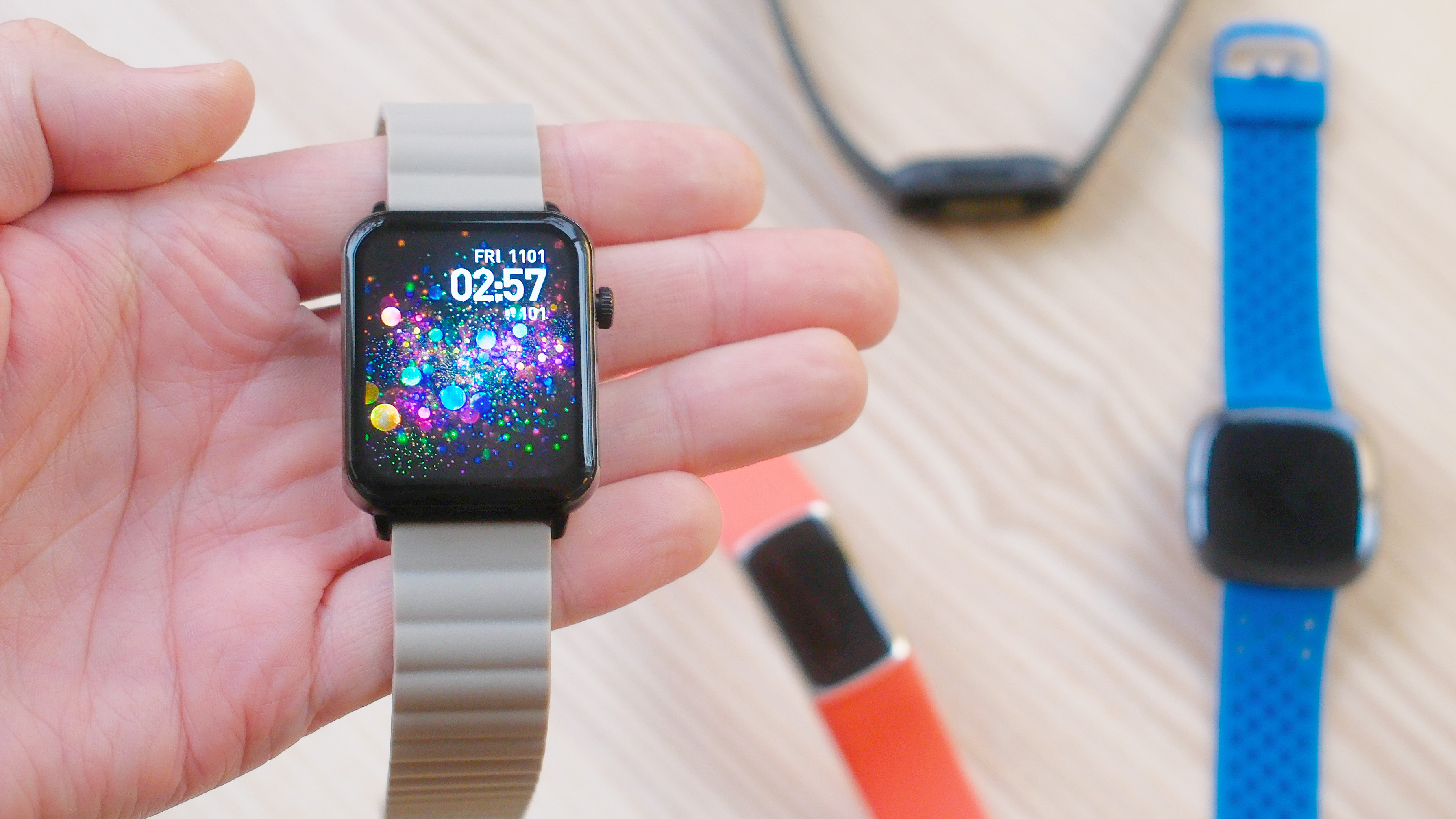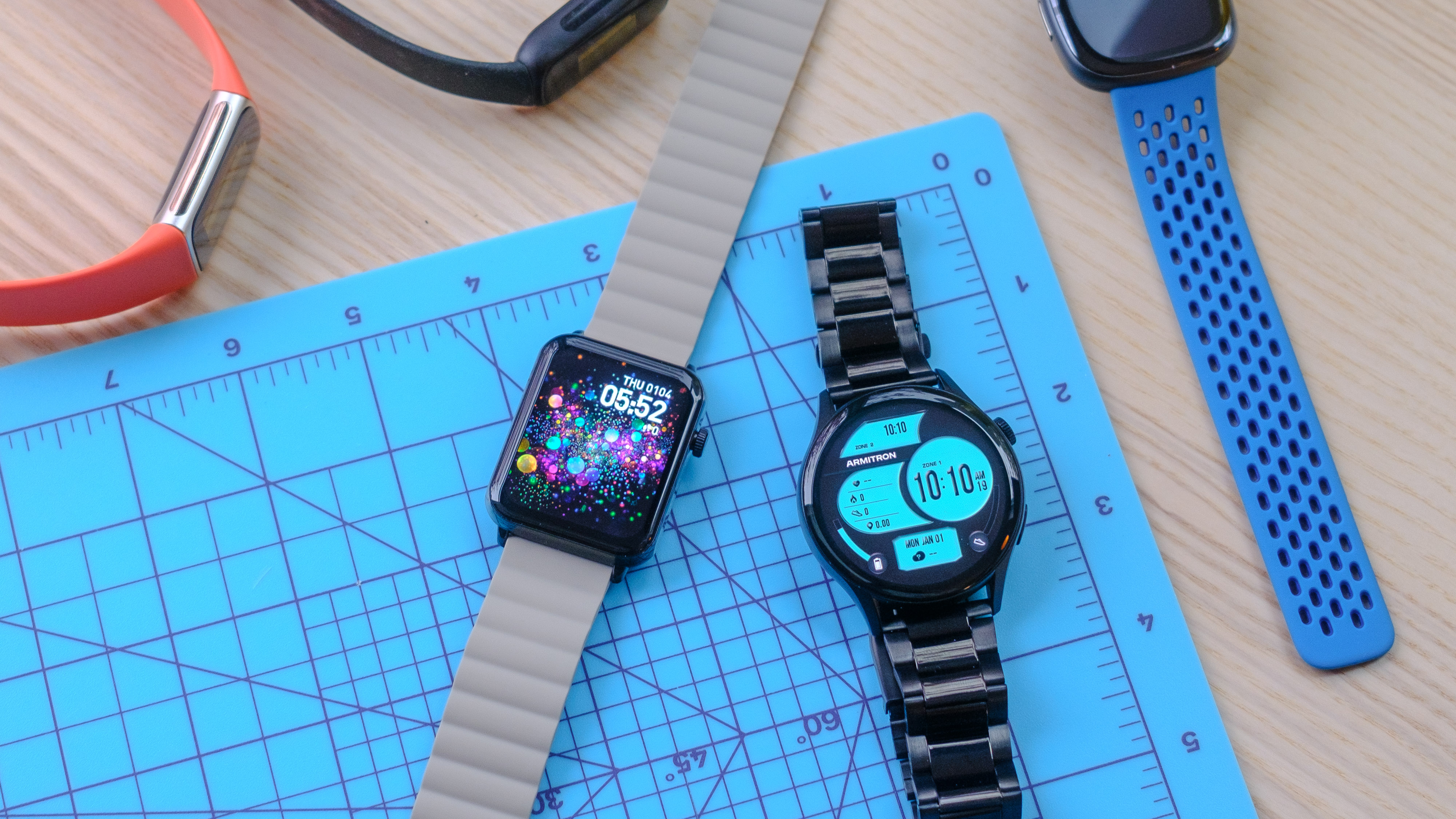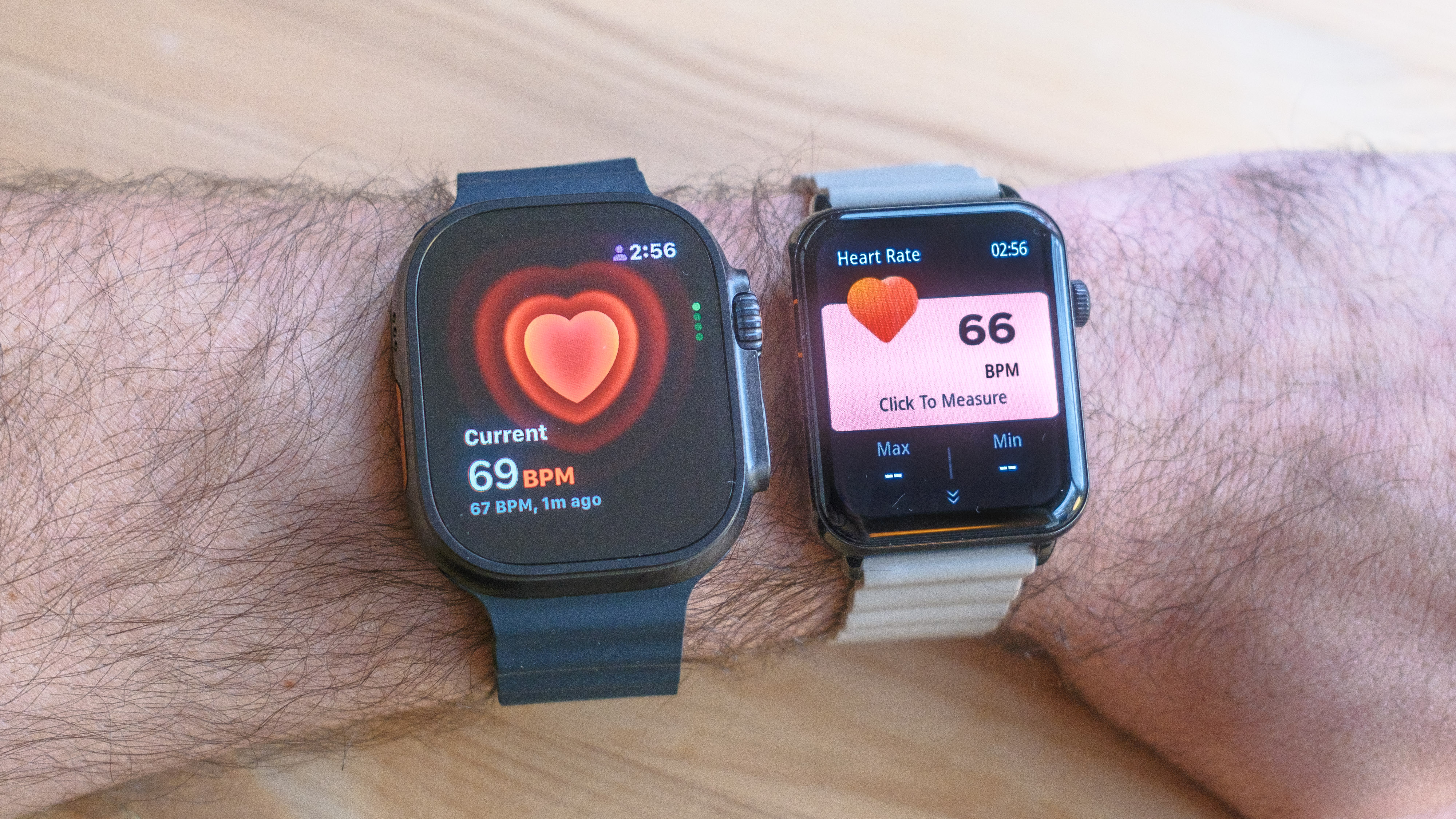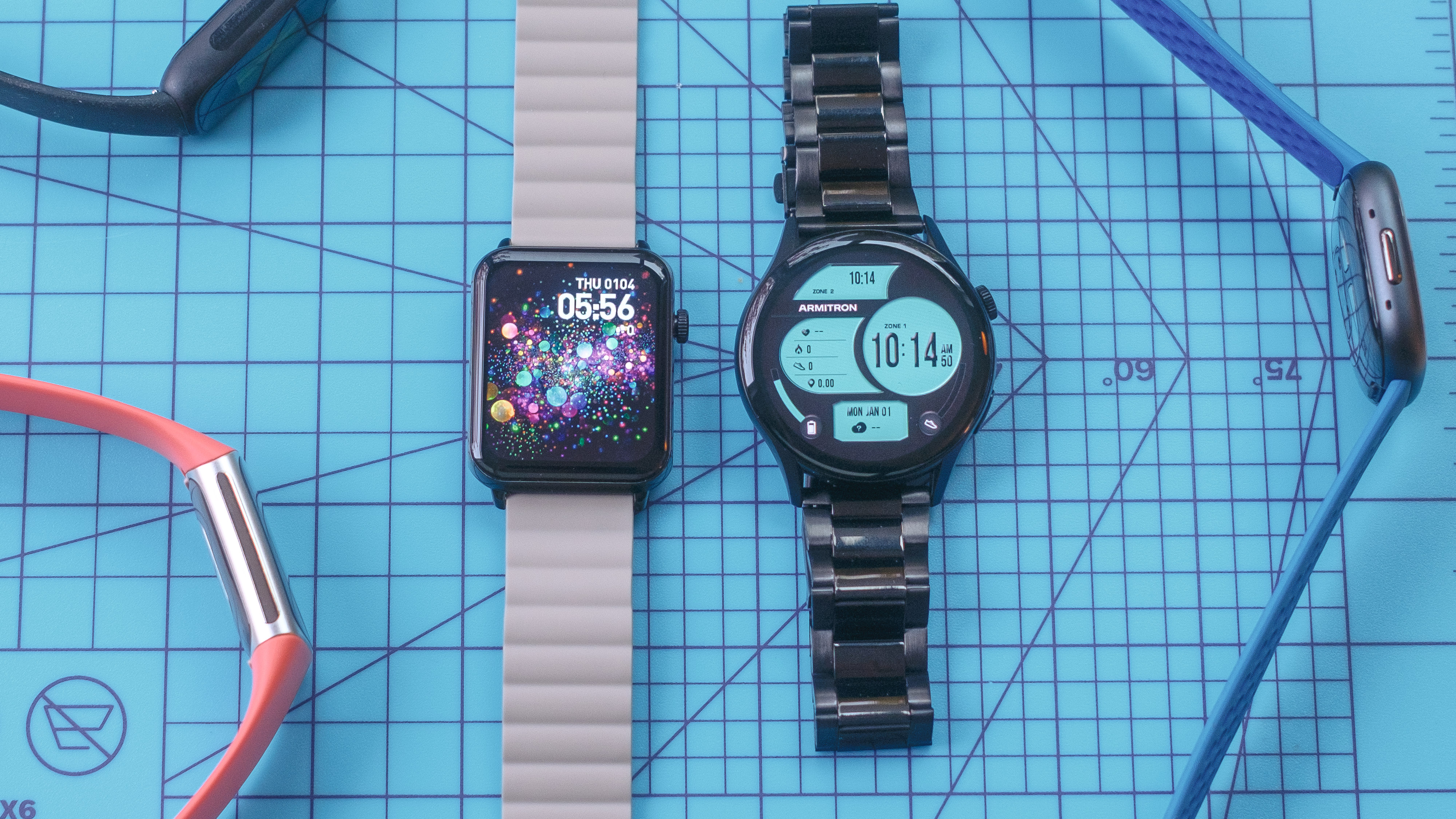Fitbit is exiting the cheap smartwatch race — and this brand could replace it

It pains me to say it, but Google is killing off the Fitbit brand. With the Versa and Sense smartwatch lines winding down and the future of the Inspire and Charge lines uncertain, there’s now a huge opportunity for another company to swoop on in and dominate the affordable smartwatch market. The question is, who will it be?
One obvious answer is Amazfit, which already offers a wide selection of wallet-friendly smartwatches, including the $89 Amazfit Bip 5, and affordable fitness trackers, like the Amazfit Band 7 — which happens to be the best fitness tracker under $50. Heck, Amazfit even has a decent-quality and subscription-free smart ring on offer for $199.
A less obvious option, though, is Armitron, a U.S.-based company that just launched its very first smartwatch models this fall. Technically, Armitron has been in the wearables game since 1975, though you’d be forgiven not knowing of the brand until today.

Headquartered in Little Neck, New York, Armitron has been pumping out affordable wristwatches for nearly half a century and is now jumping head-first into the entry-level smartwatch world, too.
The brand’s smartwatch offerings — which include the Apex, Eclipse, Matrix, Sync and Quantum — all cost between $55 and $75. This range puts Armitron squarely in Amazfit’s territory. So, can Armitron’s devices compete?
I've been testing the Armiton Matrix watch for a few days and beyond looking a lot like an Apple Watch SE, the build quality and features are on par with similar options for Amazfit. The companion app, while somewhat barebones, is also comparable to Amazfit’s Zepp Health app. And, in a recent fitness-tracking head-to-head showdown between the Armitron Matrix vs Amazfit Bip 5, both devices impressed.
The wearable can track a huge range of workouts, and it also offers sleep and women’s health tracking, mirrored smartphone notifications, Bluetooth music control and voice support for virtual assistants like Alexa.
Get instant access to breaking news, the hottest reviews, great deals and helpful tips.

On the wellness side, it monitors your heart rate, can perform blood oxygen saturation measurements, and offers sleep tracking, calorie tracking and step counting.
A quick comparison of my heart rate between the Matrix and Apple Watch Ultra 2 resulted in similar results. The SpO2 measurements also appear accurate. I took readings at three different points throughout the workday with the following results: 99%, 98% and 99%.
Of course, Armitron isn’t the only mechanical watch brand to dip its toes in the smartwatch realm. Fossil famously made them for nearly a decade before calling it quits last winter. So, why do the shot-callers at Armitron think their fate will be any different? To find out, I chatted with Armitron CMO Marisol Tamaro to get a sense of the family-run company’s strategy in the smartwatch space.
Why is Armitron getting into smartwatches and why now?
"Our smartwatches are available at prices that make them accessible to all. It’s the perfect marriage of technology, style, and value."
— Marisol Tamaro
Marisol Tamaro: We saw an opportunity to address a need amongst our consumers for a more affordable yet stylish and highly functional smartwatch. As connectivity and health continue to be top of mind for many, our smartwatches provide them with everything they need to support an active lifestyle and monitor their daily health while also staying connected.
And just like our traditional watches, our smartwatches not only look great, but they’re available at prices that make them accessible to all. It’s the perfect marriage of technology, style, and value from a brand people have come to know and trust within the watch industry for the past 50 years.
Google is winding down the Fitbit brand. How does that play into Armitron’s approach to the fitness tracker/smartwatch space?
Tamaro: Unfortunately, Fitbit failed in pivoting and innovating to meet consumer demand for a holistic wearable tech solution. Our Armitron smartwatches are designed to be accessible to all and they offer a wide range of benefits and technical features to help consumers stay connected and manage their health.
How do you compete with the many brands on Amazon that are also selling budget-friendly smartwatch and fitness trackers?
Tamaro: What sets us apart is that Armitron is a known and trusted brand within the watch industry. People are confident in making a smartwatch purchase from Amitron because of our reputation and track record for delivering high-quality, reliable and stylish solutions.
Who are your customers for smartwatch models like the Eclipse and the Matrix?
Tamaro: The end consumers for our smartwatch models are those who desire the comprehensive functionality of an Apple watch but at a more accessible price from a brand they recognize and trust.

How are you ensuring the accuracy and precision of your fitness and health metrics? Has Armitron partnered with other brands to help with this or have you developed the tech in-house?
Tamaro: We did not develop the technology in-house. We have an experienced and trusted technology partner that helped us bring this to market.
Can you tell me a little bit more about the women’s health tracking features on the latest Armitron smartwatches?
Tamaro: The women’s health tracking feature on Armitron smartwatches makes managing the menstrual cycle super convenient. It tracks cycle days, menstrual days, and last cycle day.
You’ll also get reminders, like one day before the predicted period, when ovulation starts, peaks, and ends. The app has a calendar for easy tracking, and notifications go straight to the smartwatch. This feature is designed to help our customers stay informed while keeping things organized and simple.
What is the key thing that make Armitron different from other budget-minded smartwatch makers?
Tamaro: What sets Armitron apart is that the brand and the family are closely intertwined. We began and we remain a family-owned and operated business. Our brand values are rooted in those of our founder, Mr. Gluck, and they serve as our guiding principles across everything we do. In doing our rebrand, it was important for us to preserve our legacy and these principles while also setting the stage for future growth and expansion.
More from Tom's Guide

Dan Bracaglia is the Tom’s Guide editorial lead for all things smartwatches, fitness trackers and outdoor gear. With 15 years of experience as a consumer technology journalist testing everything from Oura Rings to instant cameras, Dan is deeply passionate about helping readers save money and make informed purchasing decisions. In the past year alone, Dan has assessed major product releases from the likes of Apple, Garmin, Google, Samsung, Polar and many others.
An avid outdoor adventurer, Dan is based in the U.S. Pacific Northwest where he takes advantage of the beautiful surroundings every chance he gets. A lover of kayaking, hiking, swimming, biking, snowboarding and exploring, he also makes every effort to combine his day job with his passions. When not assessing the sleep tracking and heart rate accuracy of the latest tach gadgets, you can find him photographing Seattle’s vibrant underground music community.
